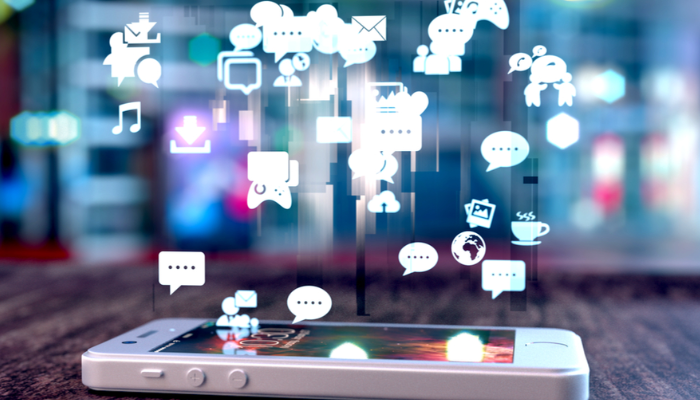Social media has become an integral part of modern society. It is used by people of all ages and backgrounds for entertainment, communication, and business. It is estimated that over 3.5 billion people use social media, with the majority of them being Millennials and Generation Z. As such, it is important to understand the impact that social media has had on modern society.
Definition of Social Media
Social media is defined as the use of online platforms, such as websites and applications, to create, share, and exchange information, ideas, pictures, and videos. It is used to connect people and facilitate communication and collaboration. Popular social media platforms include Facebook, Twitter, YouTube, Instagram, and Snapchat.
Historical Overview of Social Media
Social media has been around since the 1970s when the first online bulletin board system was created. However, it was not until the early 2000s that social media platforms, such as Facebook and Twitter, began to gain popularity. Since then, the use of social media has grown exponentially and it is now used by millions of people around the world.
Socio-cultural Impact of Social Media
Social media has had a significant impact on modern society. It has changed the way we communicate, interact, and socialize. It has allowed us to stay connected with family and friends, regardless of where we are in the world. It has also enabled us to access information and news from around the globe.
Social media has also had an impact on our culture. It has allowed people to express themselves and their opinions, which has resulted in the emergence of new trends and ideas. Furthermore, it has made it easier for people to connect with one another and form relationships.
Environmental Impact of Social Media
Social media can have both positive and negative impacts on the environment. On the one hand, it has allowed for greater awareness of environmental issues and has enabled people to take action. For example, many people have used social media to organize protests and campaigns to raise awareness of the need for environmental protection.
On the other hand, it has also contributed to the consumption of energy and resources. For example, the servers that store and process data require a lot of energy and resources, which can have a negative impact on the environment.
Economy Impact of Social Media
Social media has had a significant impact on the economy. It has allowed businesses to reach new customers, advertise their products and services, and increase their profits. Furthermore, it has enabled entrepreneurs to start new businesses and generate income. Additionally, it has allowed people to find jobs and work remotely.
Political Impact of Social Media
Social media has had a profound impact on politics. It has allowed politicians to reach a wider audience and engage with their constituents. It has also enabled them to mobilize people and spread their message. Furthermore, it has allowed for greater transparency and accountability in politics.
Psychological Impact of Social Media
Social media can have both positive and negative effects on our mental health. On the one hand, it can help to reduce feelings of loneliness and isolation. It can also provide a platform for self-expression and foster meaningful connections with others.
On the other hand, it can also lead to feelings of envy and insecurity. It can also lead to excessive scrolling and spending too much time online, which can lead to mental exhaustion.
Conclusion
In conclusion, social media has had a significant impact on modern society. It has changed the way we communicate and interact, has had a socio-cultural impact, and has had an impact on the environment, economy, politics, and psychology. Although it can have both positive and negative impacts, it is clear that social media has had a profound effect on modern society.





















Comments